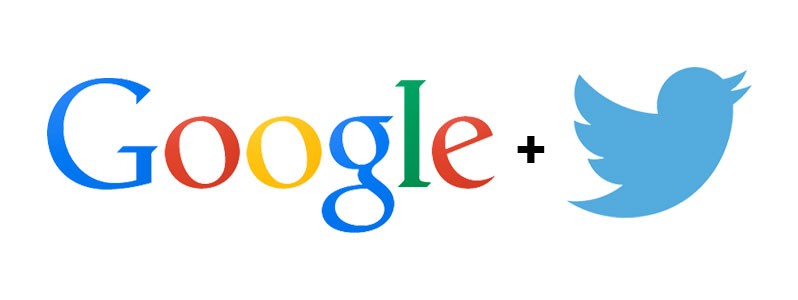Twitter Confirms Deal to Share “Fire Hose” of Tweets with Google
February 9, 2015
Table of Contents
Twitter is set to begin sharing its full stream of tweets with Google, CEO Dick Costolo announced during an earnings call on February 5. The stream, referred to as the “fire hose”, will provide the search engine with access to data from over 284 million users, according to a Bloomberg Business report.
Google currently crawls Twitter for updates relevant to search queries, but with over 6,000 tweets posted per minute, it is impossible for the search engine to to pull them all. This new deal gives Google direct access to the fire hose–their entire stream of tweets–which allows Google to index tweets right as they are posted.
A New Deal: What does the Firehose Mean for Search?
While Google’s immediate indexing of live tweets is reminiscent of their experiment with Real Time Search, this new deal is quite different than the previous agreement between Twitter and Google. From December 2009 to July 2011, Twitter shared tweets with Google, and that data was largely the foundation of Google Real Time Search: an entire section of search results comprised of live social media updates that refreshed in real time.
This feature died quickly after the deal between Google and Twitter expired, and there was never any attempt to revive it–most likely so Google could avoid providing search results based on information they couldn’t depend on. Since then, tweets have appeared in search results, though not in real time, and they are usually only the most popular or authoritative tweets.
There are still very few details as to how this new deal will work, though it is likely that tweets will appear much as they currently do, with relevant posts integrated into search results. Only now, Google will have a more comprehensive collection of data to crawl. There is not likely to be a separate section of the search results for tweets, and even more unlikely that tweets will be given preference in rankings. However, while there will not be a real time section for tweets, the tweets that appear in a search result are likely to be the most current updates.
For Google, this deal is an important step in further tailoring search results to user’s individual queries. Tweets contain highly specific and timely content, so enhancing search results by providing access to real-time tweets diversifies the content users are exposed to, and potentially creates a much more relevant, useful search experience.
Search Meets Social: Twitter Recognizes the Value of SEO
Even before the deal with Google, Twitter began making an effort to drive more organic traffic to the site. Just last year, the company announced that they’d renewed their focus on SEO, making hashtag pages crawlable by search engines to allow searches for popular hashtags to rank. As a result, the number of logged-out users or non-users visiting the site increased to 75 million per month–ten times more than their previous 7.5 million per month. With this kind of organic traffic accounting for such a massive growth in monthly visits, the next logical step was for Twitter to make all its content available to Google–not just its hashtag pages.
This deal represents that increasing emphasis on non-user generated traffic. “We’ve got the opportunity now to drive a lot of attention to and aggregate eyeballs, if you will, to these logged-out experiences, topics and events that we plan on delivering on the front page of Twitter,” Costolo said during the earnings call. “And that’s one of the reasons this makes a lot of sense for us now.”
Essentially, Twitter is recognizing the value of organic traffic driven by people who are not logged-in, but visit the site to view new and relevant content. Ensuring that tweets from the fire hose appear in search results means that Twitter can easily distribute more content to a wider audience, and possibly tap into an entire market of potential users.
JPMorgan analyst Doug Anmuth tells Bloomberg Business, “the deal means more opportunities for Twitter to convert, and possibly monetize, logged-out users…it will also increase the frequency that people with Twitter accounts check the site.” While it does not appear that Google is paying for tweets, Twitter may still receive a data-licensing revenue–and the revenue generated by advertisements placed in front of a wider network of users means the deal can prove lucrative for the company.
—
The fire hose is not yet available to Google, but all speculation points to the likelihood that the deal will go into effect within the first half of 2015. Both companies have remained fairly tight-lipped about the specifics of the deal, but details will most likely be revealed in the coming months. There isn’t any direct action SEOs need to take right now with regards to their social strategy, but as more details emerge, we’ll provide more insight into ensuring that your tweets rank.
- By fuze
- Filed under Social.
- Liked Like this post0 times


